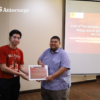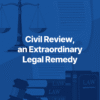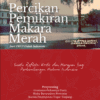The House of Representative together with the President of Indonesia have passed Law number 19 of 2019 on Second Amendment to the Law number 30 of 2002 on the Corruption Eradication Commission (“New KPK Law“). The New KPK Law has been promulgated on 17 October 2019.
Key Changes
Some of major amendments under the New KPK Law are as follows:
1. The status of KPK
Under the New KPK Law, the status of the Indonesia Corruption Eradication Commission (“KPK“) is altered from an independent state agency into a state agency that operates under the executive branch. Although the law says that KPK remains independent and free from any influences, the new status has created a deep sense of fear that it will jeopardize KPK’s independency in undertaking its duties.
2. The existence of Supervisory Board
A Supervisory Board whose function is to supervise KPK in performing its duties and authorities will be established under the New KPK Law. Its duties among others to grant approval for wiretapping, search and/or confiscation upon receiving written request from the leaders of the KPK. Members of the Supervisory Board are to be appointed by the House of Representatives based on potential candidates who are proposed by the President.
3. Authority to stop investigations and prosecutions
KPK was previously not allowed to stop investigations and prosecutions. The New KPK Law provides KPK with the authority to issue Warrant for the Stoppage of Investigations and Prosecutions (SP3) for investigations and prosecutions that cannot be completed within a maximum of 2 years period.
Highlighted Issues
Anti-corruption activists have strongly opposed the amendments as they are viewed undermining the KPK. The activists and a number of prominent figures urged the President to issue a Government Regulation in lieu of Law to replace the controversial amendment but no further development so far. Several groups have also initiated a judicial review over the New KPK Law to the Constitutional Court.
According to surveys of Transparency International, Indonesia is scored 38 points out of 100 on the 2018 Corruption Perceptions Index (the score indicates the perceived level of public sector corruption on a scale of 0 to 100, where 0 is highly corrupt and 100 is very clean).





